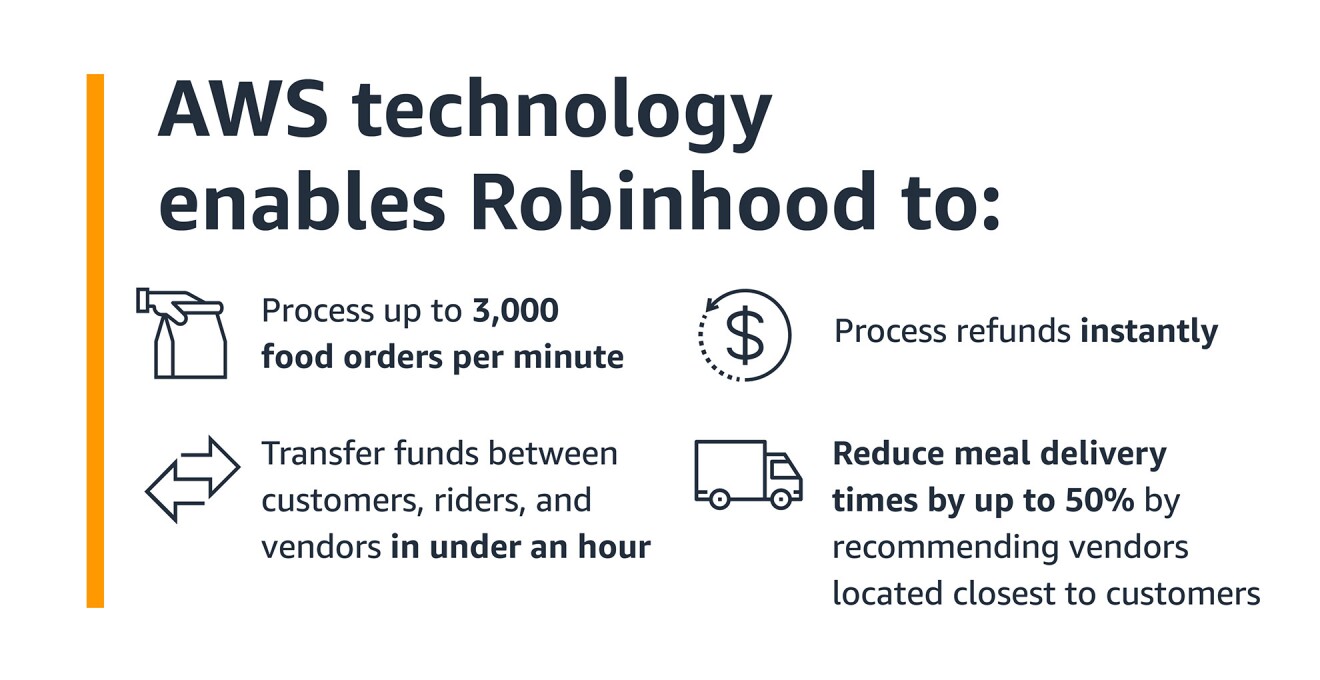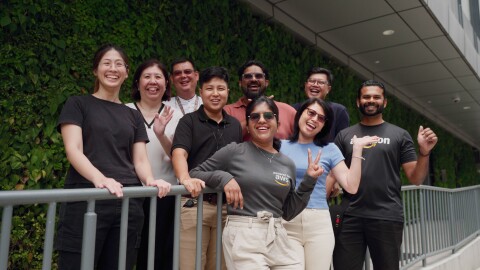For schoolteacher Papaporn Montreecharoen, who lives in Thailand, starting a business in the middle of a pandemic wasn’t a choice. It was a necessity.

After her brother lost his job, her sister had an accident that prevented her from working, and traders drastically reduced the price they’d been paying for the coconuts her family grows on its land outside Bangkok, Montreecharoen needed to find an additional source of income to support eight relatives, including two other elder siblings, and her young nieces and nephews.
To supplement her teacher’s salary, she set up Hom Mapraw, a brand of fresh coconut juice made from the coconuts the family could no longer sell directly to traders.
Montreecharoen is one of thousands of street food vendors in Thailand who have been able to grow their customer base in tough times thanks to Robinhood, a new delivery app (not to be confused with the U.S.-based financial services app) created especially for small businesses like hers.
AWS customer Purple Ventures, which is part of the Siam Commercial Bank Group (SCB Group), developed Robinhood to help independent restaurants and stalls in Bangkok survive the brutal impact of COVID-19.
The app allows vendors to sell their products at zero commission to an increasing base of over 1 million consumers. It also gives delivery riders the opportunity to rent motorbikes at low to no cost, as well as undertake courier work in addition to delivering food.
Since launching in October last year, Robinhood has already attracted more than 100,000 food stalls and 15,000 riders, many of whom are using a food delivery app for the first time.
By enabling vendors to reach a much wider customer base, the app has proved a lifeline for small business owners like Montreecharoen and Sittichan Wutthipornkul, who runs the family restaurant his father set up in 1965. Selling a secret recipe of braised beef and noodles, Wutthipornkul saw his revenue drop by half overnight as the pandemic took hold and the foot traffic on which he traditionally relied vanished.
Wutthipornkul, who had never sold anything online, let alone noodles, before using Robinhood, said the app is not only an affordable way to keep his business going, it is also helping him to increase orders.
“Small street food vendors in Bangkok have faced enormous challenges to stay afloat during the pandemic,” said Thana Thienachariya, chairman of Purple Ventures, the subsidiary of SCB that developed the app.
“Statistics show that about 25,000 of the city’s 150,000 small vendors have already been forced to close. These businesses are part of the fabric of life here. We wanted to find a way to support them.”
Using AWS, Thienachariya and his team were able to develop and launch Robinhood in only three months, creating a model that can process up to 3,000 food orders per minute and has reduced meal delivery times by half by recommending vendors located closest to customers. Aside from charging zero commission, Robinhood’s other key differentiator is speed of payment.

While most other food delivery apps usually transfer payment to vendors and riders within 10 to 15 days, Robinhood ensures they receive funds in under an hour, a feature Thienachariya said is crucial to these small businesses’ survival.
“We spoke to a lot of small food stall owners while developing the app and this was a real pain point for them,” he said. “They simply can’t afford to wait that long to get paid. It’s the same for delivery riders.”
“Because we’re a bank, this is one area where we have a clear advantage in terms of the service we can provide to customers.”
Robinhood continues to grow, as more small street food vendors start using its services. Meanwhile, as we learn to live within the pandemic, more consumers are using the app to find the familiar tastes they used to enjoy, and others are discovering new ones it has brought to their attention.
“This technology has had a huge impact on my business,” said Montreecharoen, whose coconut product sales have increased by almost 75% since she joined Robinhood. “Without it, I would never have tried to sell my products online, and could never have reached such a wide range of customers in Bangkok.”














